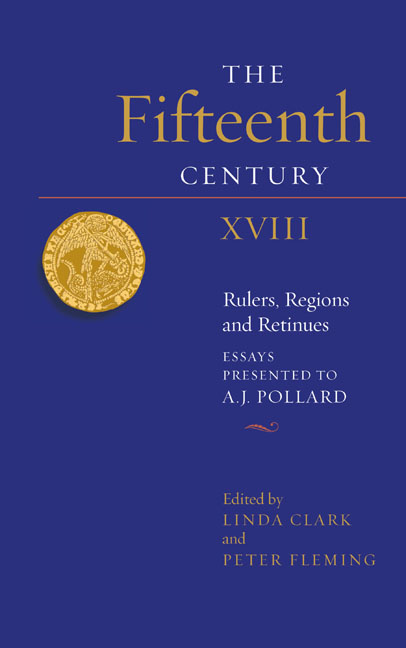Last Men Standing: Lancashire Soldiers in the Wars in France
Published online by Cambridge University Press: 24 November 2020
Summary
In 1436 Duke Philip of Burgundy was advised by Hue de Lannoy that, after heavy expenditure and loss of life over twenty years, the entire community of the realm in England was so weary of the war that they had lost all hope in it. This appraisal appears in a preamble to proposals for Burgundian diplomatic initiatives in September, but it almost certainly informed the duke's decision earlier in the year to launch an attack on Calais. The English response to the siege of Calais, however, was neither lethargic nor half-hearted. In spring 1436 the government issued proclamations warning of the attack and preparing the ground for the mobilisation of the nation in defence of its honour and interests. When the siege began, Humphrey, duke of Gloucester, was appointed to command the relief expedition and soon found himself at the head of the largest army assembled in England since 1385. Many lords and knights raised companies and Londoners volunteered for service. Although there are few surviving records of the men who served in 1436, it cannot be doubted that Lancashire was well represented. Sir John Radcliffe, a native of Lancashire, was sent ahead to organise the defence of Calais. By chance, too, it is known that Thomas Harrington, a Lancashire squire, raised, at his own expense, a company of six men-at-arms and 120 archers. Even before Gloucester's expedition crossed the Channel, the duke of Burgundy's Flemish army decided to abandon the siege. After disembarking in Calais, the expeditioners joined in the rout of the Flemings and the rapine in Flanders. In England the relief of Calais, along with the defeat of a Scots incursion, was celebrated as a great victory. In addition to triumphalist poems and ballads, a Latin poem crowed the nation's chauvinism: ‘England crushes realms, Burgundy buys dishonour / Fractured France trembles, conquered Scotland groans.’
While acknowledging the bombast in 1436, historians would probably agree with Lannoy's appraisal of English attitudes to the war. They have observed a decline in the readiness of the political nation to support the war through taxation, military service and even prayer. In explaining parliament's reluctance to fund the war in France, they have clarified the sheer intractability of the fiscal problem. The decline in participation by noble and gentle families between 1415 and 1450 has been documented in some detail.
- Type
- Chapter
- Information
- The Fifteenth Century XVIIIRulers, Regions and Retinues. Essays presented to A.J. Pollard, pp. 151 - 164Publisher: Boydell & BrewerPrint publication year: 2020

